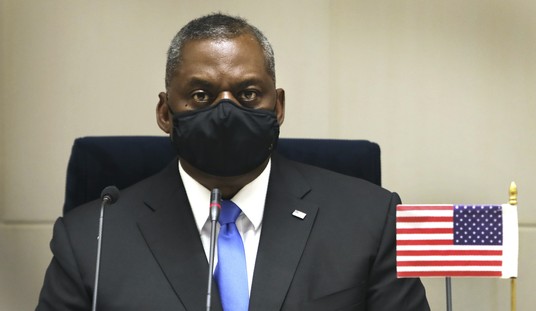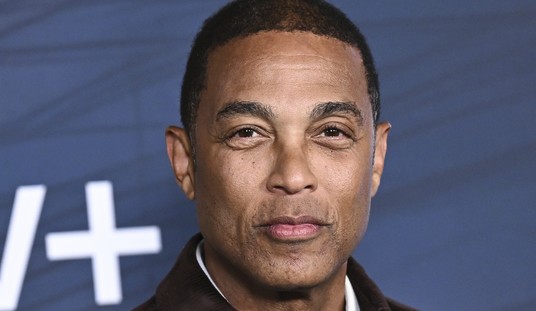
Nguyen Dinh Tri was a very successful construction contractor in South Vietnam. With the ongoing war’s uncertainty in 1975, however, he grew worried and consulted his regular soothsayer. The man told Tri that everything would be fine and he’d enjoy 10 more years of wealth — as long as he kept his mustache.
So, Tri kept his mustache. But within weeks, he had lost everything else – his business, his house, his car, his savings, his future. And his wife, children, and elderly father had become international war refugees, fleeing an authoritarian new government in the only country they’d lived in for an uncertain future in a strange land called the United States of America.
It’s a terrifying life change that countless millions have endured through the melting pot of American history. Now, thousands of Afghans, the ones who were able to escape the Taliban during Joe Biden’s botched evacuations in recent weeks, are enduring the same uncertainty, fears, cultural shock, and need to start life all over.
What are some of the lessons that the Tris’ experiences might offer the newest wave of refugees fleeing a war and newly-installed authoritarian government? I spent considerable time with the Tri family over many months and then years, watching them learn the kindnesses, generosity, language, and some puzzling ways of their new homeland. And endure a raft of hardships.
It began well. They arrived in the first wave of refugees at Camp Pendleton near San Diego. Some politicians expressed unfounded concerns the foreigners carried strange diseases.
Washington state’s Republican governor Daniel Evans ignored all that, set up acclimation teams to recruit refugees, find them sponsors, housing, jobs and bring their skills and dreams to his state.
The Tris jumped at that chance to leave the camp sooner. In classic American refugee mode, within one week of settling in Washington, the Tris were renting a house from their sponsor, made a down payment on a used car, lined up English lessons, and secured jobs for Tri, his wife, and oldest son at the Pendleton Woolen Mill. The younger girls among the eight children worked as babysitters.
The women found kitchen counters bothersome. So, they still prepared meals squatting on the floor. Their new neighbors often stopped by with “leftovers” of strange American foods and “used clothes” that strangely still carried price tags.
One of Tri’s sons thought every school bus went by his house. When the driver returned his bus to the garage, he discovered the youngster sitting quietly alone in the back watching for his house. When the Tri girls left the house for school, they surreptitiously shucked their sandals for new tennis shoes like classmates.
There were also some classroom misunderstandings as the young Tris, being respectful Asian children to adults, averted their eyes from American teachers, who saw that as shifty. Line-cutting and soup-slurping, neither of which was impolite in Vietnam, also caused frictions. Their teachers also tried to address Asians’ reluctance to question them.
The real trouble began a few months later. Tri’s younger brother showed up with his family. They’d had weeks more indoctrination from federal officials in the camp. The federal folks taught them the ins and outs of many government programs.
The younger brother began mocking his elder sibling for doing manual factory labor when he could pull in almost as much money on welfare and food stamps. And his children got free school lunches. With those funds, the brother bought a nicer car and had more time to seek work better suiting his education. Considerable face was lost.
The English tutors quickly learned to separate men from women, who remained silent among males.
One by one, the initially ambitious Tris quit their new jobs to go on welfare. They bought another nicer car and often became late with the rent. Their sponsor offered candid criticism. “I’ve got financial responsibilities, too,” he said, “and what do you think people who donated clothes will think about two cars?” The two men stopped playing tennis together.
Unemployed, Tri began acting jumpy, complaining of headaches. And his wife grew worried, too.
Ten years later, I tracked down the family in a southern Houston suburb where Tri said he moved to start a fishing business. As he was about to buy the boat, however, someone set it on fire. Truth is, the Tris also disliked the Northwest’s rainy gloom.
A hurricane demolished their house there, which the government helped rebuild. Tri’s legs got badly burned in a yard fire. His children were progressing through college, studying professions such as nursing, engineering, forestry.
But unlike Vietnam, they took jobs far away. One son even defied his father and married an American girl, which was forgiven when she produced a grandchild.
Mrs. Tri worked as a dietician in a nursing home. The children spoke their parents’ native tongue at home and English everywhere else. The family still follows a Buddhist vegetarian diet, at least at home.
The children still living with their parents remember little of Vietnam, except for its gorgeous beaches. They are allowed to join adult conversations now because, they said, their father has mellowed. At times, they even correct his English, gently.
“’There is difference,” he says, ”between praying religion and practicing religion. I make many mistakes in life. I not understand what means love before. Now, in America with Buddha I love my children more. I more tempered. Is better.”
Everyone in the family had at least part-time jobs for spending money and tuition. Before the burns, which make it painful to stand more than a few minutes, Tri himself went through a series of jobs.
He was an interpreter. He managed a liquor store. And he owned a 24-hour convenience store with family members sharing shifts. But he sold that after being locked overnight in the warehouse during the eighth armed robbery in one year.
He realizes now he’ll never regain the affluence he had with his own business. He knows the future belongs to his children in their adopted country. He thinks they’ll contribute much to America. “I teach them to be good citizens, to work hard,” he says. “Must repay this country.”
Tri did change one important thing that makes his family smile. The flames that scorched his legs also burned off his mustache. After that and leaving everything behind in Vietnam, he finally decided to discard that soothsayer’s advice. Tri now routinely shaves his upper lip. “I think,” he said, “I try next 10 years without.”












